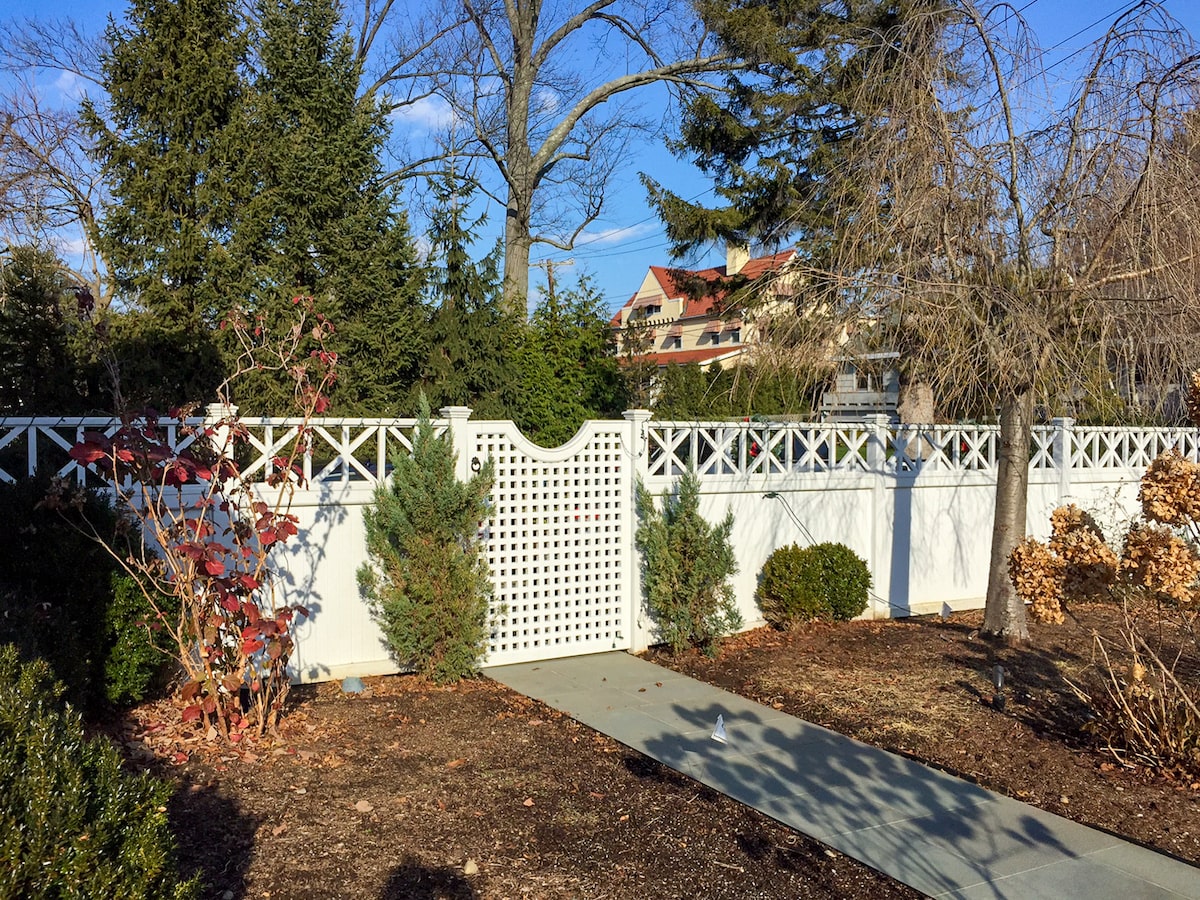All Categories
Featured
When you make a decision to set up a fencing around your house, it's vital to recognize the permit demands certain to your area. While installing a fence can feel like a basic home renovation task, local laws and laws need to be followed to ensure the setup is lawful and certified. Falling short to safeguard the appropriate permits could result in fines or perhaps require you to remove the fence. Below's a detailed appearance at the licenses you may require for fence installment.
Why Do You Need a License for Fencing Installation? A fencing is even more than simply an obstacle between residential or commercial properties-- it can influence safety and security, home value, aesthetic appeals, and also ecological conditions. City governments call for authorizations to guarantee that fencings meet certain requirements and do not cause issues for utilities, neighbors, or the community in its entirety. Permits likewise guarantee that the installation complies with zoning regulations, developing codes, and safety and security laws.
![]()
Kinds Of Licenses You Might Require. Structure Permit. A structure license is just one of one of the most common authorizations needed for fencing setup. This authorization ensures that the fence satisfies local building ordinance. For instance, if you're developing a fence over a particular elevation (normally over 6 feet), you'll likely require a building license. The neighborhood building department will typically analyze the site and review strategies to make certain the framework is stable and does not obstruct public rooms or produce risks.
Zoning Permit. A zoning permit ensures your fencing complies with obstacle, location, and height laws. Fencings may need to be established back a certain distance from pathways, roads, or property lines to prevent blockage or disturbance with energies.
HOA Authorization. If your building becomes part of a home owners organization (HOA), you may need to look for approval prior to mounting a fence. HOAs typically have guidelines that govern the aesthetics and framework of fences to guarantee they are in consistency with the community. You could need to submit your strategies for approval, and the HOA may restrict fencing product, height, or style.
Specialty Permits. In some areas, there might be additional permits needed for details situations. If your fencing is near a safeguarded ecological area or situated in a flood area, you may require to get specialized licenses associated to ecological effect. If the fencing is in a location with below ground utilities, you may require to get clearance to stay clear of damaging pipes or cables.
![]()
Easement or Utility Business Authorization. Prior to installing a fence, it's critical to check whether the building consists of an easement, such as an utility easement, which might impact where you can put your fencing. Easements are areas of land marked for public or personal energies, and you may require authorization from the utility firm or various other authority to build within this area.
How to Figure Out What Allows You Need. To guarantee that you're following all the needed laws, here's exactly how you can establish the specific licenses needed for your fencing installation:
![]()
See Your City Government Workplace: The very first step is to consult your regional structure or zoning division. Lots of cities and counties have standards available online that define what types of permits are required for fencing installment. Otherwise, calling or checking out the workplace in individual can aid make clear the process. Inspect Your City's Website: Lots of communities supply information regarding fence installations and the licenses called for through their main websites. Some sites even allow you to submit applications online. Seek Advice From a Fencing Installation Professional: If you're uncertain regarding local regulations, a professional fence contractor can help. They recognize with the permitting process and can direct you with the steps. The Consequences of Not Obtaining an Authorization. Failing to secure the essential licenses before installing a fencing can result in significant consequences. You may be fined or called for to remove the fence totally.
Verdict. Setting up a fence around your home can include both safety and curb allure, however it is essential to ensure you're following the legal action in the procedure. Looking into the certain authorization demands for your location, consisting of building licenses, zoning guidelines, HOA authorization, and utility approvals, will certainly aid guarantee your fence installment goes smoothly. Taking the time to understand these needs now can conserve you from pricey mistakes and potential legal problems down the line.
Why Do You Need a License for Fencing Installation? A fencing is even more than simply an obstacle between residential or commercial properties-- it can influence safety and security, home value, aesthetic appeals, and also ecological conditions. City governments call for authorizations to guarantee that fencings meet certain requirements and do not cause issues for utilities, neighbors, or the community in its entirety. Permits likewise guarantee that the installation complies with zoning regulations, developing codes, and safety and security laws.

Kinds Of Licenses You Might Require. Structure Permit. A structure license is just one of one of the most common authorizations needed for fencing setup. This authorization ensures that the fence satisfies local building ordinance. For instance, if you're developing a fence over a particular elevation (normally over 6 feet), you'll likely require a building license. The neighborhood building department will typically analyze the site and review strategies to make certain the framework is stable and does not obstruct public rooms or produce risks.
Zoning Permit. A zoning permit ensures your fencing complies with obstacle, location, and height laws. Fencings may need to be established back a certain distance from pathways, roads, or property lines to prevent blockage or disturbance with energies.
HOA Authorization. If your building becomes part of a home owners organization (HOA), you may need to look for approval prior to mounting a fence. HOAs typically have guidelines that govern the aesthetics and framework of fences to guarantee they are in consistency with the community. You could need to submit your strategies for approval, and the HOA may restrict fencing product, height, or style.
Specialty Permits. In some areas, there might be additional permits needed for details situations. If your fencing is near a safeguarded ecological area or situated in a flood area, you may require to get specialized licenses associated to ecological effect. If the fencing is in a location with below ground utilities, you may require to get clearance to stay clear of damaging pipes or cables.

Easement or Utility Business Authorization. Prior to installing a fence, it's critical to check whether the building consists of an easement, such as an utility easement, which might impact where you can put your fencing. Easements are areas of land marked for public or personal energies, and you may require authorization from the utility firm or various other authority to build within this area.
How to Figure Out What Allows You Need. To guarantee that you're following all the needed laws, here's exactly how you can establish the specific licenses needed for your fencing installation:

See Your City Government Workplace: The very first step is to consult your regional structure or zoning division. Lots of cities and counties have standards available online that define what types of permits are required for fencing installment. Otherwise, calling or checking out the workplace in individual can aid make clear the process. Inspect Your City's Website: Lots of communities supply information regarding fence installations and the licenses called for through their main websites. Some sites even allow you to submit applications online. Seek Advice From a Fencing Installation Professional: If you're uncertain regarding local regulations, a professional fence contractor can help. They recognize with the permitting process and can direct you with the steps. The Consequences of Not Obtaining an Authorization. Failing to secure the essential licenses before installing a fencing can result in significant consequences. You may be fined or called for to remove the fence totally.
Verdict. Setting up a fence around your home can include both safety and curb allure, however it is essential to ensure you're following the legal action in the procedure. Looking into the certain authorization demands for your location, consisting of building licenses, zoning guidelines, HOA authorization, and utility approvals, will certainly aid guarantee your fence installment goes smoothly. Taking the time to understand these needs now can conserve you from pricey mistakes and potential legal problems down the line.
Latest Posts
Learn About Brake Repair & More: Full Auto Care Solutions from Montclare Auto Repair
Published May 27, 25
1 min read
Discover Affordable Auto Repairs with Montclare’s Exclusive Service Specials
Published May 22, 25
1 min read
How Regular Car Maintenance at Montclare Auto Repair Saves You Money
Published May 20, 25
1 min read
More
Latest Posts
Learn About Brake Repair & More: Full Auto Care Solutions from Montclare Auto Repair
Published May 27, 25
1 min read
Discover Affordable Auto Repairs with Montclare’s Exclusive Service Specials
Published May 22, 25
1 min read
How Regular Car Maintenance at Montclare Auto Repair Saves You Money
Published May 20, 25
1 min read